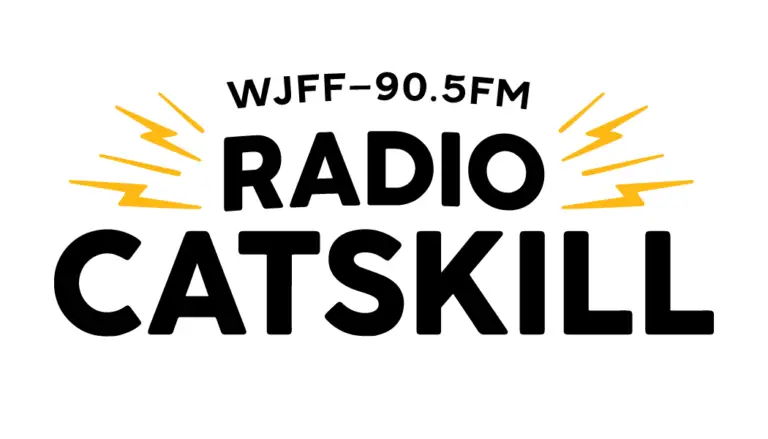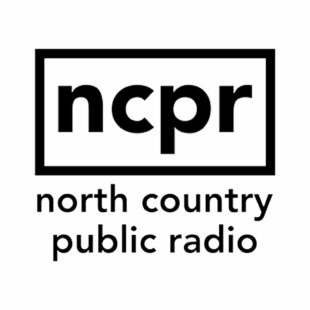The U.S. Senate and House have approved the Rescissions Act of 2025, eliminating crucial federal funding for public media and devastating rural radio stations.
The passing of the Rescissions Act of 2025 has revoked previously approved federal funds of over $9 billion which were allocated to foreign aid and public broadcasting. The $1.1 billion budget of the Corporation for Public Broadcasting (CPB), whose federal funds support public media such as public radio and television stations, was effectively canceled for the first time since organization’s founding in 1967.

The elimination of CPB funds threatens public media organizations across the country, including media giants like PBS and NPR, but this ruling will most prominently devastate rural radio stations that are heavily reliant on federal funding.
WJFF 90.5 FM, Radio Catskill, a non-commercial, listener-supported public radio station serving the Catskill Mountains and Northeast Pennsylvania, is one of the many rural stations that will be forced to face financial difficulties of the Rescissions Act.

“The funding from the Corporation for Public Broadcasting (CPB) represents about 25% of our budget. Losing that support would seriously impact what we’re able to offer the community and could limit the services we’re here to provide,” said General Manager of Radio Catskill Tim Bruno.
Though the repercussions of the Rescissions Act will be felt by rural stations across the country, Bruno explained that upholding community values remains at the center of what Radio Catskill does and will continue to do.
“We offer all kinds of local programming that people count on. It’s not just NPR—our community relies on us for local news, music, arts coverage, and more. These are the things that enrich our lives and help keep us connected. Imagine losing 25% of that,” said Bruno. “We’re certainly facing challenges to close this funding gap, and some tough decisions about programming may be ahead. But any choices we make will be thoughtful and guided by community input. Listener support has kept us going for 35 years, and we’re not going anywhere.”
The Trump administration’s stance that PBS and NPR have become unfairly biased in their political views – without evidence to support such a claim – have fueled the defunding of public media, but Bruno explained that politics and propaganda have no place in any of Radio Catskill’s operations.
“Our core mission is to serve the public. We’re not coming to work every day to push any political agenda – we’re here to connect people with local news and information that actually matters to their lives,” said Bruno. “That’s especially critical in a rural area like ours, where communities are spread out across a large region. Frankly, it’s absurd to suggest we’re doing anything else.”
Radio Catskill estimates their projected shortfalls from funding losses to be nearly $170,000, prompting the station to organize a Summer Fund Drive to earn financial support from listeners.

NCPR 97.3, North Country Public Radio, a regional station that serves the Adirondack North Country region, is another rural radio station that will be significantly impacted by the Rescission Act.

“The greatest concern I have is that the loss of 12-15% of our annual budget will make it harder and more complicated to produce the really good work we’ve done for our North Country communities for so long. We will lean more heavily on our other sources of funding – our individual donors, our business sponsors, and foundation grants – but there’s a very real chance we may have to cut back in areas, whether it’s national programming, local staff, or maintaining the infrastructure it takes to broadcast from our 34 transmitters around the region,” said station manager Mitch Teich.
Rural radio stations earn alternative funding from various donors and sponsors, but their smaller donor base and fewer resources to pursue private grants will hinder the ability to compensate for lost federal funding.
The impact of federal funding losses has the ability to force stations off-air, while others may need to downsize coverage areas, cutting off communities and its listeners due to high costs. Teich explains that coverage concerns are now an unfortunate reality for NCPR and will have lasting repercussions for musicians and artists that kickstart their careers on rural radio.
“Reaching a rural, remote audience is one of the most difficult and expensive things that we do. It’s important for us to be a station that represents the many pockets of the region authentically – and with less money to invest in original reporting, it’ll be harder to do that. Our best arts and music coverage involves being on-site with the artists and painting an audio picture of what they do,” said Teich. “And that’s time, money, and labor-intensive, so it’s hard to imagine that funding cuts wouldn’t have a negative effect on our ability to do right by those stories. But we are a big piece of the cultural fabric of the region, so we will not turn our back on those stories, either. It’s really important that we tell the stories of jazz musicians from Plattsburgh and water colorists from Old Forge, and we’ll find a way to keep doing that.”
The Rescission Act has already begun to impact the operations of rural stations, Teich explains that of its immediate effects, the future of NCPR remains uncertain.
“The biggest immediate impact of this bill has been our inability to plan for the future. We have priorities and initiatives that depend on knowing what our budget will look like in a year or two years. And employees would like to know what their salaries will be next year. So a lot is on hold at the moment, and a lot will depend on how much we’re able to fill gaps left by the loss of federal funding,” said Teich.
While primarily a public television station, Mountain Lake PBS (MLPBS) has long served rural communities across New York with regions that are also heavily reliant on local radio.

“The loss of approximately $950,000 in annual federal funding—about 35% of our annual budget—is a devastating blow to Mountain Lake PBS. Our greatest concern is that this decision threatens our ability to serve the people of our region at the level they deserve and have come to expect,” said Director of Communications Jennifer Kowalczyk. “Our noncommercial, educational station has relied on federal support for nearly 50 years. That funding allows us to provide trusted news, educational programming, and local productions like Mountain Lake Journal— which we know has been especially important to rural and underserved audiences.”
Slashed budget cuts will not only affect the regions that receive coverage, but the ability to provide full coverage on a variety of topics, with arts and culture stories predicted to be one of the most affected branches of coverage, Kowalcyzk explained.
“These cuts will force us to restructure and/or discontinue local productions, including things like concert coverage. Reduced funding will absolutely affect our ability to cover arts and cultural stories with the depth and consistency our audience expects—especially in small communities that rely on us for that coverage,” said Kowalczyk.
As a PBS member station, MLPBS will suffer the repercussions of the Rescissions Bill, as will PBS member stations across the nation and even the media giant PBS themselves.
Known for its educational shows, videos and games, PBS has produced content to improve the literacy and social skills of children for nearly 60 years. One of their top programs, “Sesame Street“, a public television staple for decades featuring its band of famous, brightly colored characters, Elmo, Big Bird, Cookie Monster and more, all spreading messages of inclusivity, diversity and community in an inner-city not unlike parts of New York City. But PBS’s devastating loss of funding has jeopardized Sesame Street’s ability to be broadcast in rural stations that heavily rely on federal support to operate, greatly limiting its outreach to teach children about the show’s core values.
The passing of the Rescission Act of 2025 has left the fate of New York rural radio stations that are reliant on federal funding unknown and risks jeopardizing arts, culture and public media as a whole.


Comments are closed.